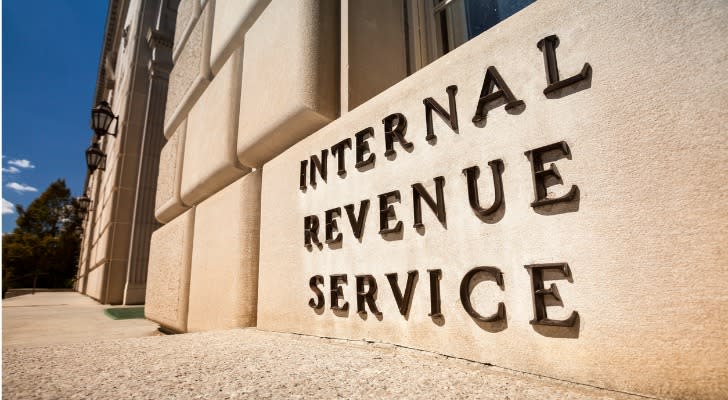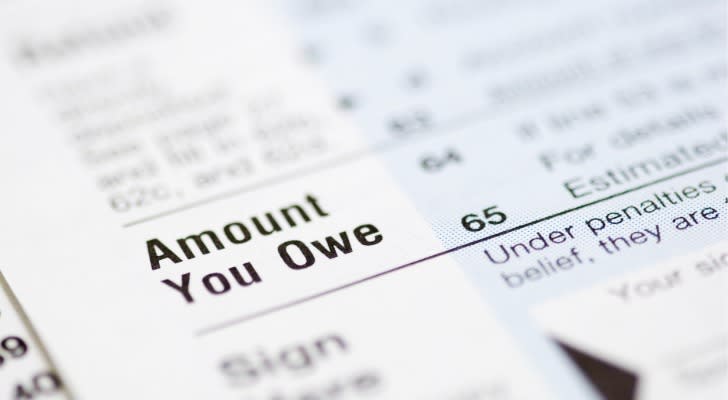

The IRS recently announced a major tax enforcement initiative that will increase scrutiny on high-income earners, partnerships and people with foreign bank accounts. The agency said the effort would “restore fairness to [the] tax system” by focusing on wealthy taxpayers who have seen sharp declines in audit rates over the past decade.
A financial advisor can help you assess your audit risks and potential tax liabilities. Speak with an advisor today.
Targeting Million-Dollar Earners With Large Tax Debts
At the center of the IRS crackdown are individuals who report over $1 million in income and have more than $250,000 in recognized tax debt. In its Sept. 8 announcement, the agency said it has identified 1,600 taxpayers fitting these criteria who collectively owe hundreds of millions in unpaid taxes.
The IRS described plans to use specialized revenue officers concentrating solely on collecting from these high-end delinquent accounts starting in fiscal year 2024. For those who fall into this segment, expect the IRS to come knocking as early as next year.
The news follows an injection of billions of dollars into the IRS budget from the Inflation Reduction Act. The agency says the added funding will pay the cost of collecting more from wealthy tax cheats, while maintaining low audit rates for people earning less than $400,000 a year. Another goal is to reduce or limit audits of moderate- and low-income taxpayers claiming the Earned Income Tax Credit (EITC).
AI-Powered Large Partnership Audits
The IRS is also significantly expanding examinations of large partnership tax returns. Because their complexity overwhelmed the tax collection agency’s resources and ability to analyze them, these returns have received limited scrutiny historically, according to the IRS. Audit rates for these large partnerships have also declined in recent years as the agency’s funding and staff have shrunk.
By the end of September, the agency plans to change that by opening audits of 75 of the biggest partnerships in the U.S., each with over $10 billion in assets. In October, the IRS will also begin mailing compliance notices to 500 partnerships for unexplained discrepancies in their balance sheets that could potentially trigger audits if not addressed.
The IRS plan calls for using artificial intelligence to analyze these complex returns. The idea is to employ machine learning to detect anomalies and more accurately target non-compliant returns for audit. This, the agency says, will enable more efficient use of limited IRS exam resources on detailed exams of complex partnership returns.
IRS statements on this new initiative stress that it won’t affect taxpayers with moderate and lower incomes. However, no matter what your income, if you hold partnership interests, especially in a large private equity fund, hedge fund or real estate partnership, you may be affected by the new enforcement.
Increased Enforcement on Foreign Financial Accounts

The IRS is also expanding enforcement for failure to disclose foreign bank and financial accounts. By law, you must file a foreign bank account report (FBAR) separately from your return if you have over $10,000 in offshore accounts.
The IRS found filing discrepancies indicating potential non-compliance among hundreds of taxpayers with average account balances exceeding $1.4 million. The agency is planning to audit the most serious FBAR offenders in 2024.
If you have any foreign accounts or assets, pay close attention to FBAR filing obligations. The IRS intends to have more sophisticated means on hand to identify unreported foreign holdings. Penalties for willful failures to disclose required information can be stiff.
Bottom Line
This IRS is expanding its enforcement efforts on high-income taxpayers and large partnerships for which audit rates have plunged over the past decade. If you earn over $1 million, hold interests in major partnerships or have foreign financial accounts, you may be in the IRS’ crosshairs. Even taxpayers who previously have avoided audits may now attract scrutiny from a more endowed IRS. Now more than ever, it’s advisable to tap into qualified tax advice, be proactive about compliance and respond quickly, accurately and completely to any IRS notices in order to minimize potential penalties and interest.
Tax Planning Tips
-
A financial advisor with tax expertise can be a helpful partner in your financial journey. Finding a financial advisor doesn’t have to be hard. SmartAsset’s free tool matches you with up to three vetted financial advisors who serve your area, and you can have a free introductory call with your advisor matches to decide which one you feel is right for you. If you’re ready to find an advisor who can help you achieve your financial goals, get started now.
-
If you’re a DIY tax filer, picking the right software to file your return is essential. SmartAsset has examined the options and compiled a list of the best software for different kinds of filers.
Photo credit: ©iStock.com/Pgiam, ©iStock.com/emmgunn
The post The IRS Is Cracking Down on These High-Income Earners. Are You One of Them? appeared first on SmartReads by SmartAsset.
Source link




